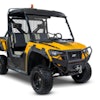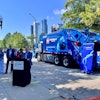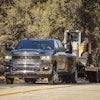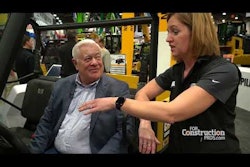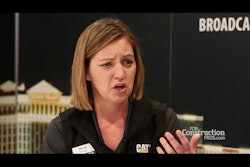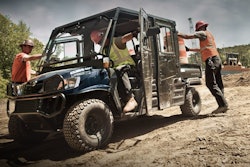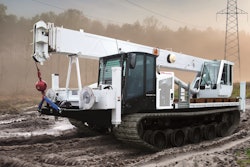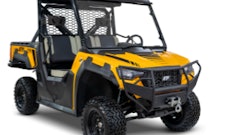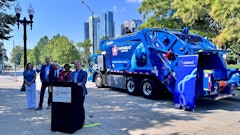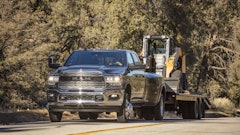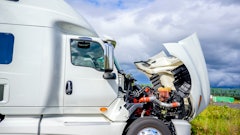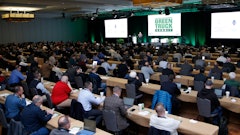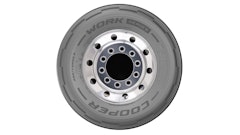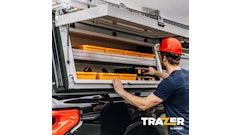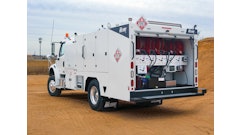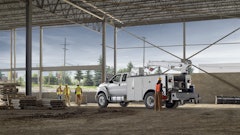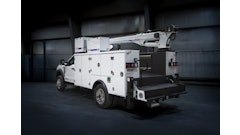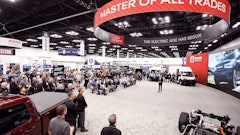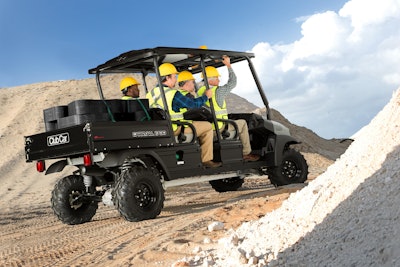
Poorly designed air intake systems can cause engine clogging and early engine failure on rental-ready work utility vehicles.
Yet rental houses don’t always take this into account when purchasing vehicles, even though their vehicles operate in dirty, dusty environments. As a result, they are experiencing high rates of engine failures.
Here’s why.
Most utility vehicles’ air intake is on the back of the vehicle and close to the ground, where the rear wheels roll up dirt and dust. These vehicles also rely on flat air filters that concentrate filtration on one spot. That’s a triple whammy, resulting in dirty oil, frequent filter changes and costly engine failure.
RGRents, an independent rental company in St. Louis, MO that services commercial contractors, was renting utility vehicles made by several manufacturers. But none of them could withstand the punishing conditions on dusty construction sites.
“The vehicles simply weren’t built to hold up in demanding and dirty environments,” says RG Rents Co-owner Joe Alonzo. “As a result, we were experiencing high call volumes and short life spans on our utility vehicles.”
The solution? Thoughtful purchasing
Look for vehicles engineered to help prevent these problems, such as rental-ready Carryall 1500 and Carryall 1700 work utility vehicles. These vehicles take air into the engine though chassis tubes that sit 29 inches above the ground on the front of the vehicle, which generates less dust.
Therefore, the tubes draw cleaner air into the vehicles’ engine. The vehicles also feature Donaldson Cyclonic air filters that swirl the air around the entire circular filter, rather than forcing it though one section of a flat filter. The results? Better filtration, cleaner oil, fewer filter changes and longer engine life.
Thanks to the high location of the air intake system, Club Car vehicles can also travel though water and mud that comes right up to the brake pedal, without allowing water into the intake system or choking the vehicle.
The quality of our air intake system will slash your down time, and possibly allow you to reduce the size of your fleet.
RGRents replaced all their utility vehicles with rental-ready Carryall utility vehicles. “The vehicles were readily available, and we keep them rented all the time with very few problems,” says Alonzo.
The cost differential
There’s also a big difference in engine costs. Replacement costs on Club Car engines tally at around $2,300, plus $400 labor for installation. Further, you can order your parts directly through Club Car, using SMART EQUIP. And rental parts go out overnight. That means no long and costly down time.
Competitive engines cost approximately 100% more to purchase and install. And you may experience long waits, as you’ll work through a dealer who orders the engine from the manufacturer.
Finally, clean air intake lets Club Car vehicles hold their value. You’ll get a higher price when you auction them off.
The take away?
Pay careful attention to the air intake system when purchasing utility vehicles. Well designed systems like Club Car’s are far less likely to result in engine failure. You’ll enjoy longer life, improved performance and higher resale value.
For more information, call Club Car’s Dedicated Rental Support Team at 706-955-0252, visit http://clubcar.com/rentals or contact Jeff Miller at [email protected].
